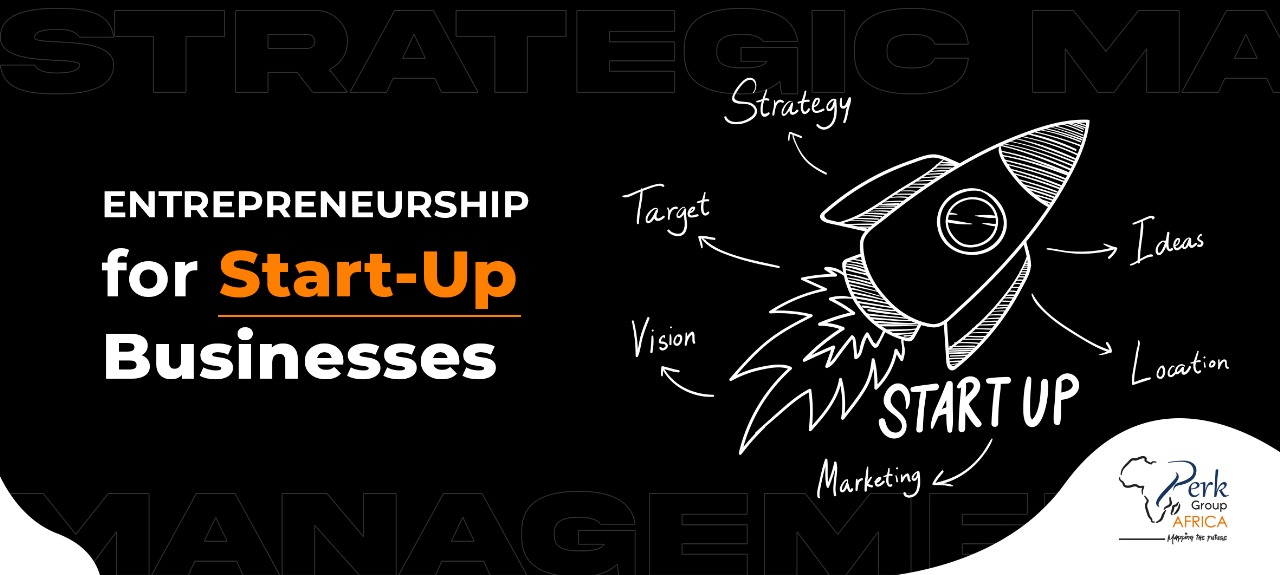
Training Course on Entrepreneurship for Start-Up Businesses
Course Overview
This course is designed for those interested in starting their own business, either as their primary income or extra income while still employed. The course is centered on three major aspect which include the entrepreneur, business ideas and business plan formulation with potential to meet profit goals. The named element will assist any current or potential entrepreneur develop and grow a business now and in the future.
Course Objectives:
The course is to enable you to:
- Understand the concept of entrepreneurship and learn how opportunities lead to a successful enterprise
- Recognize and creatively think how to design and innovate unique business opportunities
- Understand the skills and knowledge for running and managing a new business
- Learn to create effective business plan
Organizational Benefits:
Organizations whose employees take up the course will benefit in the following ways:
- Employees with entrepreneurship skills bring innovation to the company
- A mindset of entrepreneurship generates momentum to the core business
- Entrepreneurship skills inspire talent development and changes work culture
- Employees take accountability for their work to deliver results
- Entrepreneurship skills among employees increases organizations potential and helps develop new streams of revenue
Personal Benefits:
Participants attending the course will have the following benefits:
- They will learn skills to be an effective entrepreneur
- New startup creates job opportunities in society and thereby creates a social change
- Individuals with these skills improve the quality of life and make them self sufficient
- They develop better decision-making skills
- Learn to better communicate, negotiate and be well networked
Course Duration:
Online Training: 5 days (4hrs per day)
Classroom Training: 5 days (7hrs per day)
Course Outline
Module 1: Introduction to entrepreneurship
By the end of the session the participant should be able to:
- Understand what is entrepreneurship
- Understand the entrepreneurial mindset and word associated to entrepreneurship
- Know the characteristics of an entrepreneur and carry out self-assessment on whether they possess them
- Carry out a personal SWOT analysis to help in personal viability assessment to help them understand if they posses the character, aspirations and skills for entrepreneurship.
- Carry out business viability gained through commercial awareness to asses the customers, competitors, profitability, fundability and risks associated with the startup business
- Match personal viability with commercial viability of the business idea
Module 2: Idea generation and business models
By the end of the session the participant should be able to:
- Understand what is idea generation and what it entails
- Explain the importance of idea generation
- Discuss various idea generation techniques used
- Understand innovation
- Understand and apply various business models used by entrepreneurs to run business
– Traditional method
– Affiliate
– Freemium
– Auction
– Subscription
– Bait and hook
– Franchising
– Direct sales
Module 3: Introduction to building a successful business plan
By the end of the session the participant should be able to:
- Know how to develop a business plan for a new business idea
- Understand the various parts of a business plan
- Write up an executive summary for the business idea
- Explain the ownership and background of the key players
- Capture details on the range of products and services to be provided
Module 4: Formulation of the marketing plan for the business plan
By the end of the session the participant should be able to:
- Demonstrate knowledge based on research of the nature and location of customers
- Explain the motivation of customers to purchase the product and not the competitors
- Carry out market research using both primary and secondary sources and produce evidence of testing incase there was product testing
- Formulate a marketing strategy focusing on the classic four aspects of marketing
- Know how the sales channel is linked to the business model
- Carry out competitor analysis based on the market share and level of competitiveness.
Module 5: Operations, logistics and financing
By the end of the session the participant should be able to:
- Explain the operations and logistics in terms of human and physical resources
- Apply costs and pricing strategy justifying how much will be charged and why
- Carry out a sales forecast with details for sales, profit and explanation on how cash will be managed
- Formulate business performance measurement and capture the key performance indicators
- Understand the different types of business pitches;
– Elevator pitch
– Main business pitch
- Develop and deliver the business pitch
Note: This outline provides a general structure for the training. The specific content, activities, and duration of each session may be adjusted based on the target audience, learning objectives, and available time.
Classroom Training Schedule
| Start Date | End Date | Location | Cost | Apply |
|---|---|---|---|---|
| Mar 02, 2026 | Mar 06, 2026 | Nairobi | $ 1200 | Register |
| Apr 06, 2026 | Apr 10, 2026 | Nairobi | $ 1200 | Register |
| May 11, 2026 | May 15, 2026 | Nairobi | $ 1200 | Register |
| Jun 15, 2026 | Jun 19, 2026 | Nairobi | $ 1200 | Register |
| Jul 20, 2026 | Jul 24, 2026 | Nairobi | $ 1200 | Register |
| Aug 24, 2026 | Aug 28, 2026 | Nairobi | $ 1200 | Register |
| Sep 28, 2026 | Oct 02, 2026 | Nairobi | $ 1200 | Register |
| Nov 02, 2026 | Nov 06, 2026 | Nairobi | $ 1200 | Register |
| Dec 07, 2026 | Dec 11, 2026 | Nairobi | $ 1200 | Register |
Virtual Training Schedule
| Start Date | End Date | Location | Cost | Apply | |||
|---|---|---|---|---|---|---|---|
| Feb 16, 2026 | Feb 20, 2026 | Online | $ 600 | Register | |||
| Mar 23, 2026 | Mar 27, 2026 | Online | $ 600 | Register | |||
| Apr 27, 2026 | May 01, 2026 | Online | $ 600 | Register | |||
| Jun 01, 2026 | Jun 05, 2026 | Online | $ 600 | Register | |||
| Jul 06, 2026 | Jul 10, 2026 | Online | $ 600 | Register | |||
| Aug 10, 2026 | Aug 14, 2026 | Online | $ 600 | Register | |||
| Sep 14, 2026 | Sep 18, 2026 | Online | $ 600 | Register | |||
| Oct 19, 2026 | Oct 23, 2026 | Online | $ 600 | Register | |||
| Nov 23, 2026 | Nov 27, 2026 | Online | $ 600 | Register |
Course Language
This Training course is offered in ENGLISH . Please indicate the language of choice during registration.
Course Delivery
Presentations are well guided, practical exercise, a plenary presentation, and group work. Participants are encouraged to bring any data relevant to their job responsibilities. This is hands-on, product-oriented training and will mostly involve practical exercises. Each participant MUST bring along their own working laptop and android phone.
Certification
Upon completion of training, the participant will be issued with a certificate of Completion.
Tailor-Made Course
3 months post-training support, consultation, and coaching is a guarantee from us and will be available after the course.We can also do this as a tailor-made course to meet organization-wide needs. Contact us to find out more: training@perk-gafrica.com.
